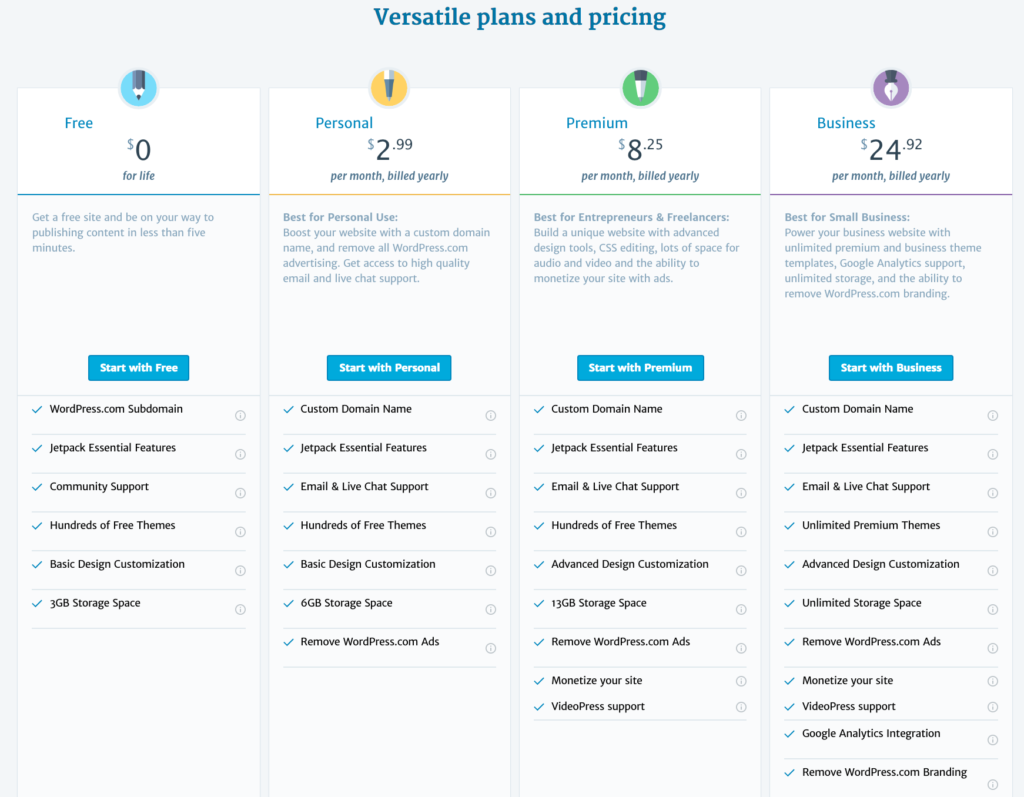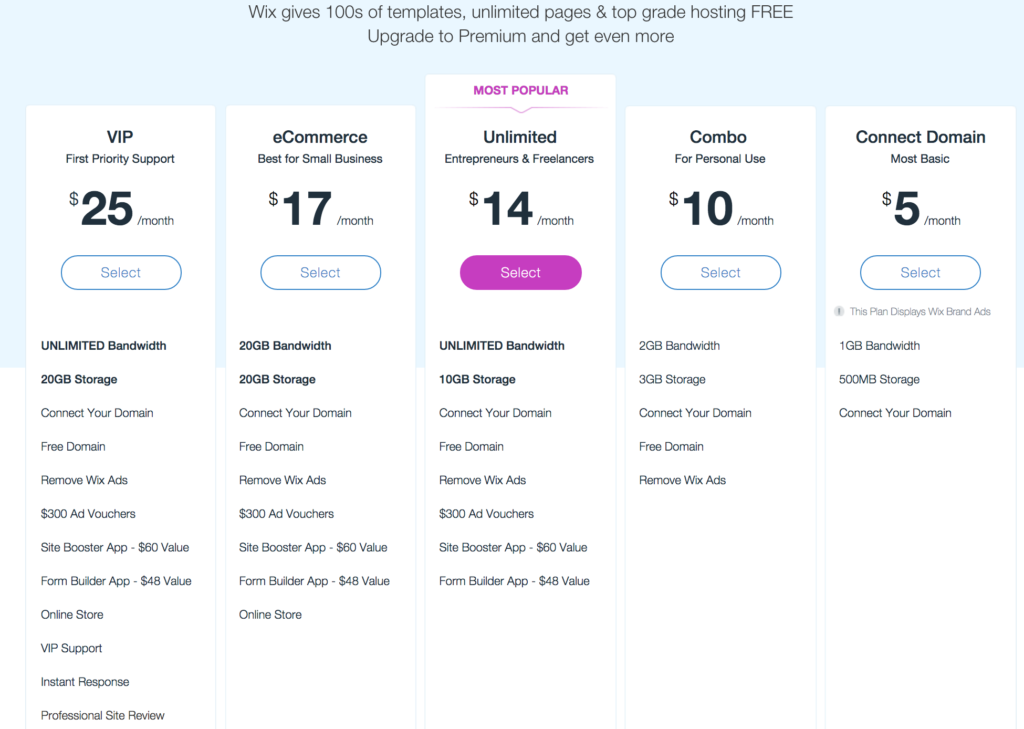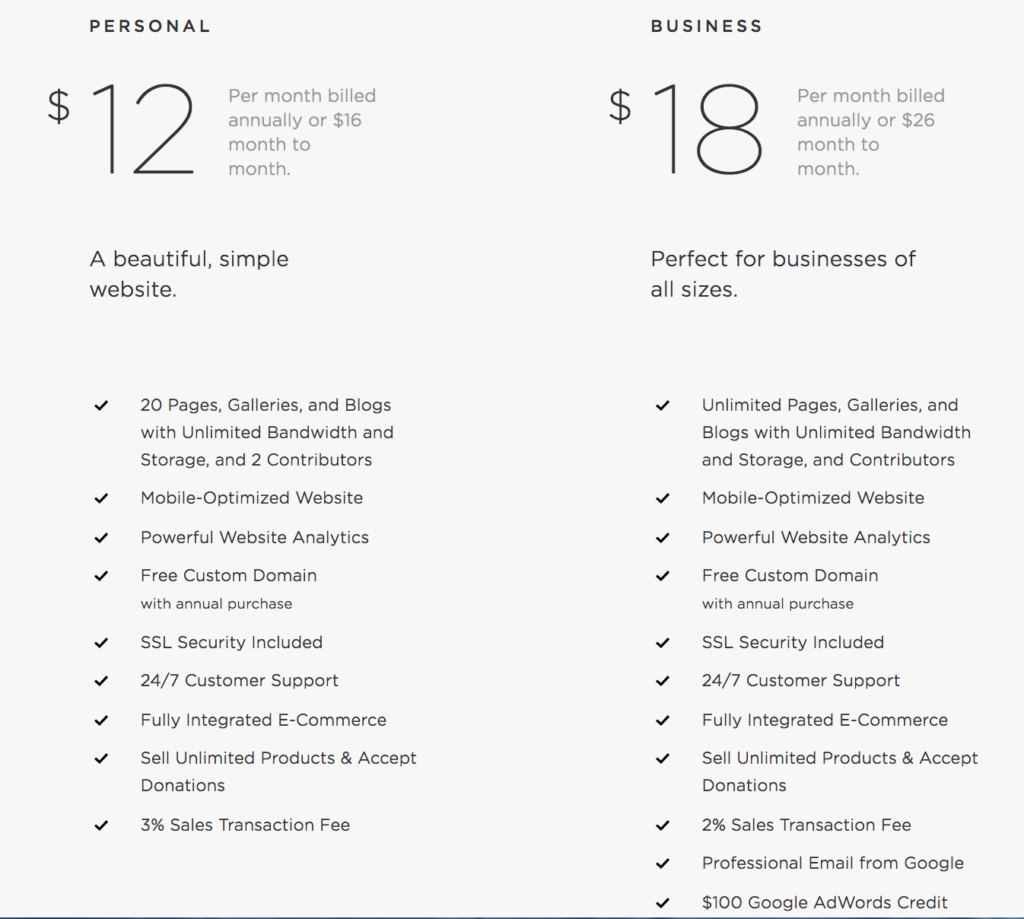How to Start a Blog: Five Platforms You Can Use
Personal or Business Blog?
Have you really wanted to start a blog for your business, or maybe even a personal blog, but didn’t know where to start? A successful blog is easier than you thought! First, you need to decide what type of blog you want, is it a personal blog or for a business? Next, what do you want the theme to be? For example, maybe you own a small restaurant and you want to blog about food. Maybe you are a musician and you want a more personal page. Whatever it may be, make sure to think about what type and theme you want your blog to be that will dictate what photos you use and what types of things you write about in your blog (more about that to come in the next series).
Free or Paid Domain?
Next, you need to make a decision whether you want to use a free blog service or if you want to pay a monthly fee for a domain name. For example, if you have a free Weebly account the domain name (also known as URL) might look like www.johnsmith.weebly.com. However, if you want to pay the monthly fee of about $40 a month you could have johnsmith.com.
What Are You Paying For?
Why would you want to pay for a domain if you can get one for free? Paying for a domain has several benefits which vary depending on which website is hosting your domain.
- Paying for a domain makes your blog/website look official. You can use the domain to market your business as it looks like you own the page (because you do)!
- Most paid domains include the use of AdWords, which is a service to manage advertisements on the top of the Google searches. This way when people search certain keywords that you have paid for using AdWords your blog will show up on the top. However, each time someone clicks the ad, you pay for it.
- You can control your search engine optimization (SEO) better.
Each one of the 5 platforms below have their own benefits at varying prices, so it’s easy to decide which benefits you want and at what price.
Five Blogging Platforms:
If you have a website already you can add a blog to it by simply creating new pages each time you write a blog. If you don’t have a website or if you want to create a website just for blogs I would suggest using one of these five. Check out the benefits of each and what you get for a free or paid page.
- Weebly has many templates that are very user-friendly and easy to modify quickly. Weebly is very easy for beginners to navigate.

- Wordpress is the most popular blog platform, hosting 27% of the Internet. Wordpress is more modifiable you can really get into a lot of HTML coding if you wanted to.

- Wix is another option. It is a really easy website builder that uses a simple drag and drop tool. Although, it doesn’t integrate as well with Google Analytics or AdWords.

- Squarespace was one of the top advertisers during the 2017 Super Bowl. The company is predicted to become a huge player in the website hosting arena.

- Blogger (formally known as Blogspot) is a very basic but easy-to-use website for personal blogs. Blogger could be used for a small business, but I see Blogger as more of a personal blog website to use, let’s say, if you want to blog about your travels or your own health and diet for friends and family.
There are several different platforms to choose from when starting a blog. It’s most important to look at several of them and determine what the best fit and price are for you. If you have used one of these five before I would love to know what you thought about it! Stay tuned for the next blog about creating a calendar.
Elizabeth Muckensturm – Content Specialist






